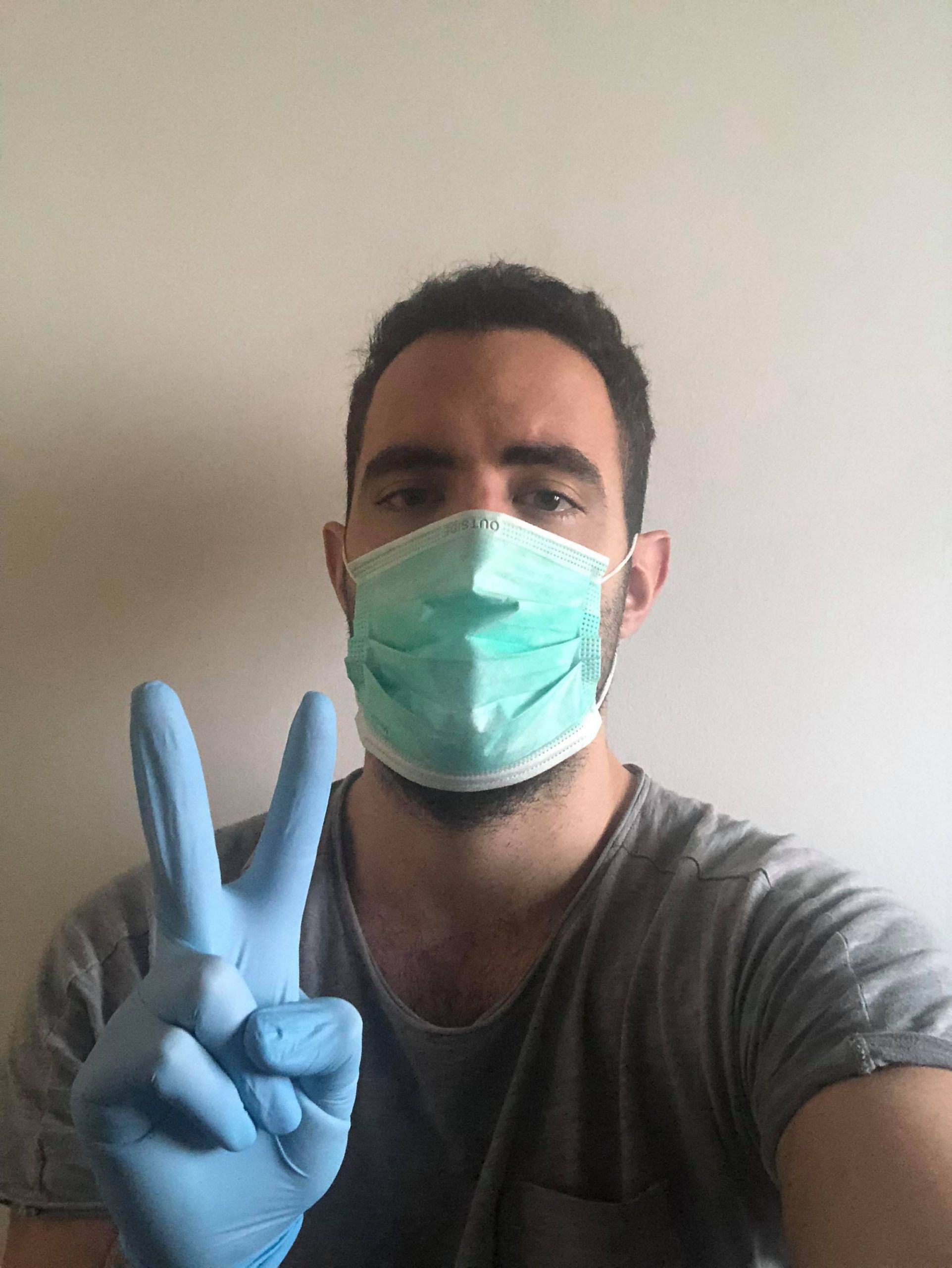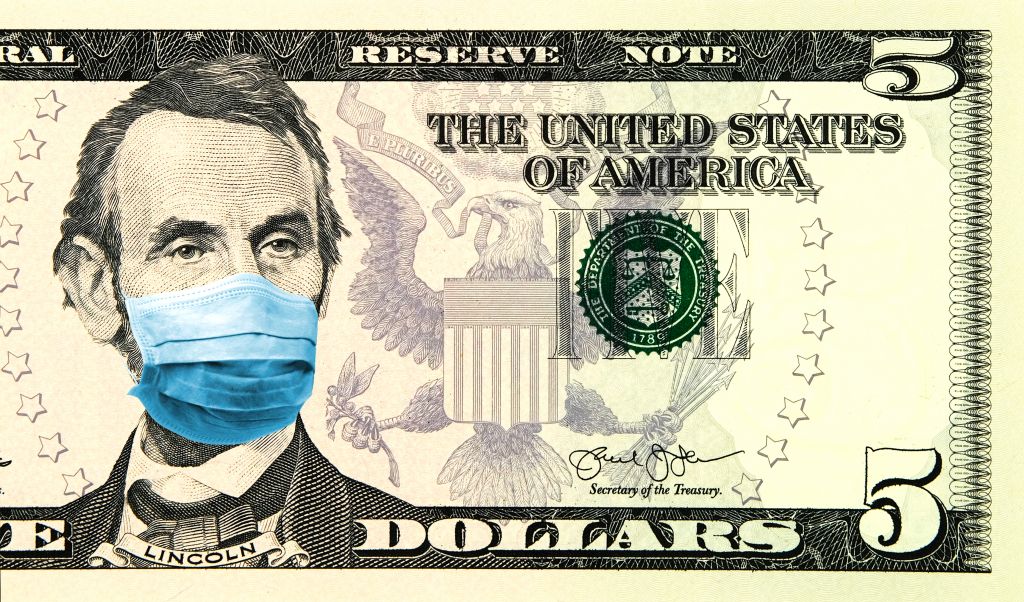COVID-19: “The most terrifying words in the English language: I’m from the government and I’m here to help”

(Photo: Zarko Zaharov)
Ronald Reagan once famously said, “The most terrifying words in the English language: I’m from the government and I’m here to help”. These days however the government appears to be the safer bet. Allow me to elaborate.
I have long been a supporter of people first, and systems second. I’ve seldom put my trust or even too much attention in any particular government. I felt like over time, most systems prove to be inefficient, corrupted by greed or failed by the weakest-link theory and human error or incompetence.
People know what’s best for them in most cases, and I was always advocating more personal freedom and liberalization.
But what this COVID-19 crisis has made me realize is that people are evidently helpless and incapable of seeing beyond the walls of their personal good to the garden that is the greater collective good.
From a personal development program perspective for people who are in some sort of treatment, there is a way a situation like this must be approached that I reckon is analogous to sociological and even global survival.
1, acknowledging the problem.
2, a belief that a problem can be solved.
3, the problem can’t be solved individually but perhaps can be collectively.
4, that we really need to understand it, share information, and trust experts in individual fields.
We were too slow and stubborn at step 1. We were too fearful and panicky at step 2, stealing sanitizers, hording groceries and exposing ourselves to huge masses of people literally minutes after we were told not to. This continues to step 3 where we really sucked, since people are inherently selfish and “my wellbeing first, F you later” to a point that I am out of toilet paper and every store is emptied but my neighbour who seems like a douche anyway, has 36 million paper rolls I am sure. I will let you decide for yourself how we are doing at step 4 and just say this:
It took a nationwide campaign that ran for years and millions of dollars before the American public was convinced that they should brush their teeth every night. I have very little faith when it comes to step 4 and the average person.
I will not pretend to be holy or even better than the rest. Oh no, my own ignorance in this case is a solid foundation for my self-loathing.
When I first heard about COVID-19, my own personal trajectory went from glib and dismissive to “I’d better use this as an excuse to get out of things I don’t want to do”, to the realization of how serious this catastrophe is.
This, of course, comes at a time when there is an embedded distrust in government and media outlets, so I suppose the message did not get to the vast majority as clearly and strictly as it should have been perceived.
Or maybe there is a deeply rooted psychological cause that people are inherently more likely to accept a good lie than the inconvenient truth.
As sceptical as I was, one day sitting at CBS, listening to this fund manager project his economic optimism on me, I believed him. I wanted to believe him.
Yet if a government official had been in his shoes, hollering Armageddon and warning me about the imminent arrival of a personally and economically devastating virus, I would have dismissed him. “Jeez, what’s his problem. Maybe he slept on the couch last night”.
Yet here we are. I am seeing my own company being hugely impacted by this crisis. We cannot do our jobs and if this continues for much longer, we could lose most of our clients.
I am seeing half of my investment portfolio wiped clean. I am seeing a threat of a family member losing his job. I am worrying about my own mother’s wellbeing and potential exposure to COVID-19 as a health professional in these times. I am worried about my elderly family members. I am seeing my master’s thesis progression grind to a halt since gathering information, sitting in the library, attending relevant seminars and meeting relevant people, has become impossible.
I can’t even take this pretty girl I met out on a date, for crying out loud. By the time this all passes, she’ll have forgotten about me and I shall forever blame losing my shot at love on some guy in Wuhan eating an infected bat.

(Illustration: Shutterstock)
To come back to Ronald’s famous quote, what is my point with it? You see, for the first time in my life, I’ve come to conclude that I’d rather put my faith in the government than the people.
People, left to their own devices, are apparently doomed. This is evident by now.
It is the very loved-to-be-hated system put in place that has and will save us. The health system working overtime. The legislative express changes. Leaders making incredibly hard decisions. The USD 50 billion bailout package Denmark made available to save companies, cover employees, and keep the economy going the best we can. The SU period prolonged if needed and the option to get SU without working (for international students).
In one way or another, the majority of the Danish population is receiving or ought to receive help. This is unprecedented, unlike anything we have seen in Denmark’s history.
I am overwhelmed with a sense of gratitude and privilege to be in this part of the world, in this country, where we have strong systems and an economy to combat this major-league challenger.
This is the silver lining in this war against COVID-19.
I hope it inspires a broader perspective for people – especially hardcore capitalists. When someone needed help, they would usually be the first to say, “Why should he get my tax money – Go get a job”, failing to understand “Simon’s” situation and inability to do so. Why is it different for Simon to get help than SAS, who just got DKK 2 billion to keep the lights on?
Do you see any difference? I don’t. It’s just that we call one “bailout” and the other “income support”.
However, this is not an invitation to subscribe to the idea that government is everything, and blindly trust your respected officials. We have by now seen a lot of countries fail to use the time China bought the world efficiently.
We should have tested everyone at the airports starting back in January. We didn’t.
Many experts say only full isolation works and the sooner we respect house quarantine the sooner society can go back to normal. We haven’t done that either. We have also seen leaders, especially a certain orange-skinned one, blindly deny it and show zero leadership.
In many ways, this could have been predicted, and if not directly prevented then at least managed more efficiently. We hear representatives say “this is uncharted territory; we have never encountered anything like this”. That’s BS. Just look at history.
But each time (there is an epidemic/pandemic) we seem to be unprepared, unorganized and poorly managed.
I hope, when we eventually make it through this and the dust has settled, that we see this as a sobering experience and take preventive measures, improve national health systems / governing bodies and stop cutting health budgets to better the chances of battling the next pandemic.
We need to restructure and reorganize in some key areas and put a clear-cut procedure in place for the next one.
To quote from the infamous Art of War, “Victorious warriors win first and then go to war, while defeated warriors go to war first and then seek to win”.
On the topic of war, there is a saying, war is a mother of everything. I hope this “war” will give birth to a new tomorrow where people who were otherwise critics of a welfare system funded by highly taxed income will gain new perspectives.
I hope people take this time to look inwards and look at their fellow men and women, to see who is showing solidarity and who is showing selfishness. I hope people look at their elected leaders under the scope for, in times like this, they show their true colours and interests. I hope people remember to thank the men and women looking out for them in the form of everyone from the mailman to the doctor.
When this is over, I hope we see unity and appreciation for life like never before.
I hope.
Stay calm and stay home until then.




































































































































Comments